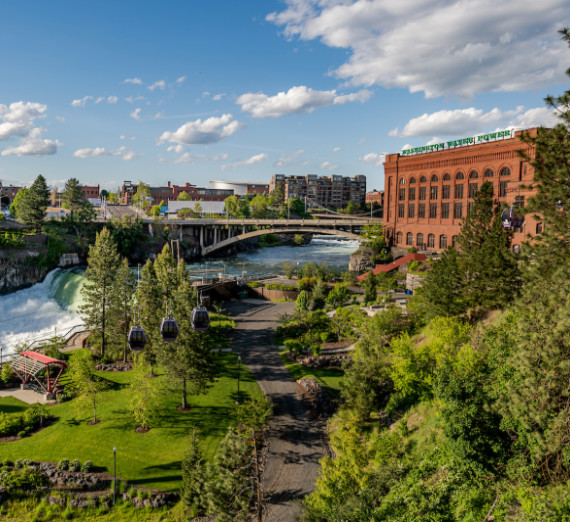Spokane and Gonzaga University Partner to Help Prepare Neighborhood Leaders


SPOKANE, Wash. -- In partnership with the city of Spokane, Gonzaga University’s School of Leadership Studies will offer education and training to neighborhood leaders starting in January.
The pilot Spokane Neighborhood Leadership Academy aims to provide the skills that volunteers working on their Neighborhood Council need to be effective. The free academy is a five-month program for 10 to 12 participants, built around four-hour sessions on six Saturdays and small-group meetings led by mentors. The intent is to offer the program every year.
The idea for enhancing leadership skills among volunteer neighbors came from City Council President Breann Beggs and was further developed by Carly Cortright, director of the city’s Office of Neighborhood Services. Spokane has 29 Neighborhood Councils spread across the three council districts.
“This is a great partnership between Gonzaga, the city and our neighborhoods that is intended to provide ongoing training and engagement this year and into the future with additional cohorts,” Beggs said.
With City Council support, Gonzaga conducted a strengths and needs assessment from February to July. According to Cortright, the study “revealed that our volunteer leaders desired skills in running effective meetings, managing conflict, effective collaboration with city partners, and principles of diversity, equity and inclusion.”
“Office of Neighborhood Services is thrilled to partner with Gonzaga’s School of Leadership Studies on this program,” Cortright added. “They have been invested in helping our neighborhoods develop the next generation of leaders in community engagement.”
Rachelle Strawther, director of GU’s new Center for Lifelong Learning, is the university’s liaison for the partnership. She has held positions with the School of Leadership Studies for eight years.
“During the assessment, we heard from current and former neighborhood leaders who were passionate about making their communities a better place but felt unprepared for the challenges that came with serving in a leadership role and lacked information about city processes and resources,” Strawther said.
“We also heard from community members who attended Neighborhood Council meetings and didn’t feel welcome or inspired to return. And yet it was clear that our city is full of people who want to feel more connected to their neighbors, want to revitalize their neighborhoods, and want to be more involved.”
Strawther sees the academy as the bridge for that involvement.
“It’s not going to solve all of the challenges that were articulated during the assessment, but it’s a key starting point for new and emerging neighborhood leaders who want to serve their communities,” she said.
“The program is designed to support participants in three key ways: Develop essential skills for leading volunteer teams; learn how to create inclusive, welcoming spaces and collaborate with people of diverse backgrounds; and become familiar with Spokane’s municipal structures, processes and resources.”
The expectation is that participants will serve in a neighborhood leadership role for at least two years from the start of the program and maintain connection with their cohort after the program ends.
Strawther said the approach to the leadership academy reflects Gonzaga’s values.
“Our leadership philosophy at Gonzaga is one of accompaniment – the concept of walking alongside people on their journey and meeting them where they are at,” she said. “We are not coming into this partnership with a ‘sage-on-the-stage’ posture or an attitude of superiority. Rather, we come to this as an equal member of the Spokane community, with a goal of creating space for shared learning and growth.”
The application process for the inaugural academy session has ended.
For questions about the academy, see the brochure or email neigh.svcs@spokanecity.org.
